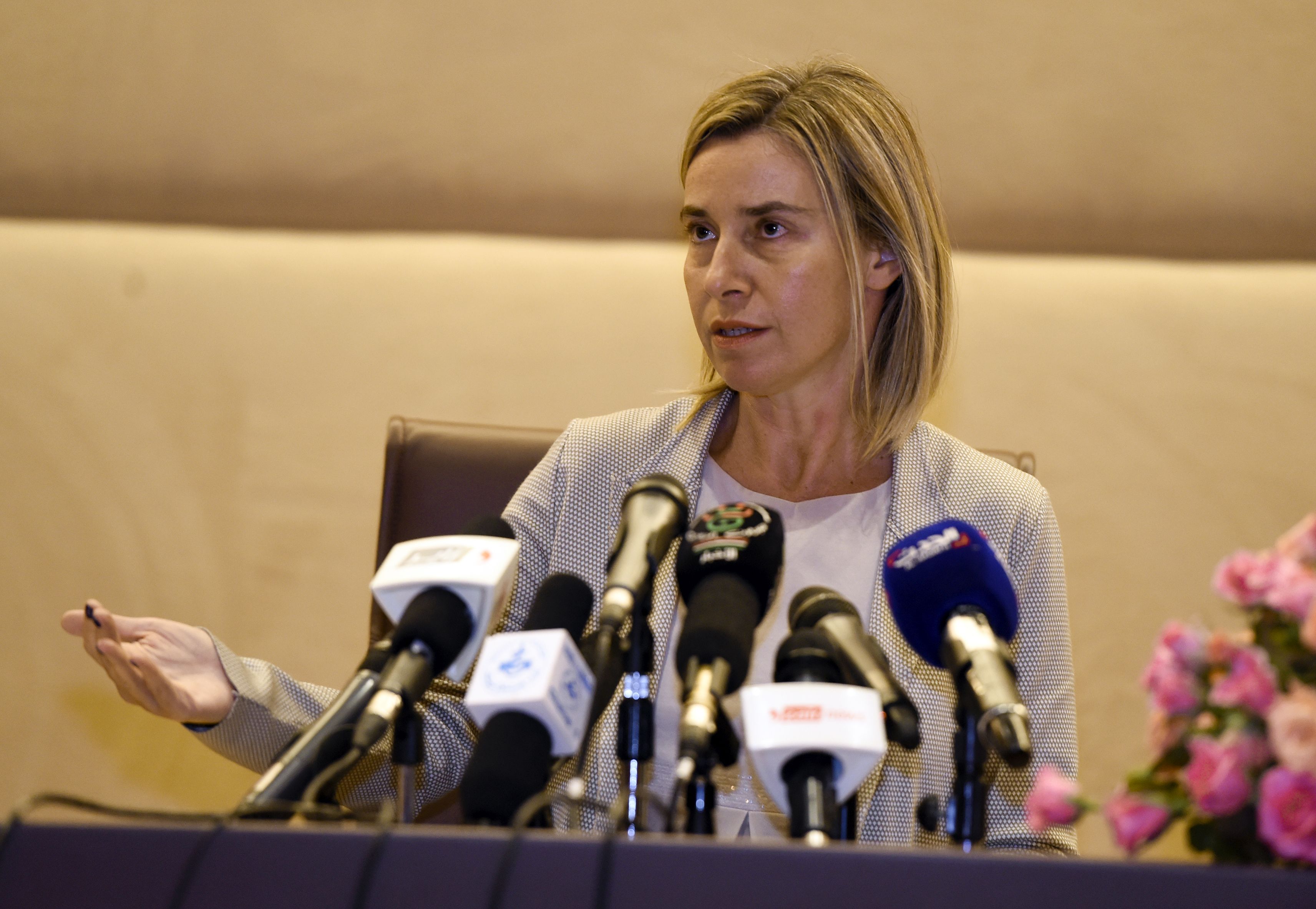When Federica Mogherini took the stage on June 28, the vast majority of politicians and journalists were still buzzing around Brexit. Instead of joining the debates about the demise of the European project, the EU’s High Commissioner Mogherini went on to lay out a clear vision for the union’s further interactions with the world – the EU Global Strategy (EUGS). Developed by the EEAS over the course of the last two years, the strategy paper embodies a remarkable change in approach towards the usage of EU soft power, that is most prominently visible through an open ‘good-bye’ to utopianism, and an embracement of so-called ‘principled pragmatism’ instead. (see also Julian Rappold’s post)
This new approach, although so far existing only on paper, will mean major changes for both the EU’s involvement in democracy promotion worldwide, as well as for its activism through the European Neighbourhood Policy (ENP). A detailed analysis of what the EUGS means for these areas is thus imperative, not least because it will allow representatives of civil society (CSOs) and other activists to critically assess and successfully influence the implementation of the strategy into concrete policies.
One of the most striking facts about the role of democracy promotion in the new global strategy is probably the relative lack of it – in particular when compared to similar documents from the past. This comes following an extensive assessment of the Union’s transformative powers, which, despite previous hopes, have proven themselves rather limited. On the one hand, the EEAS grudgingly had to acknowledge that the governments of many countries it works with in democracy promotion do not really want far-reaching reform and rarely follow up on plans and promises. On the other hand, the EU itself has shown that its soft power is less convincing to other countries than previously thought. Taking these insights into account, Mogherini consequently decided to tone down on it, and to replace the old focus on democracy promotion with a different model.
Based on the new dominating concept of the EUGS, ‘principled pragmatism’, the EU’s new guiding principle and buzzword-to-be for relations with transition countries is ‘resilience’. Defined by Mogherini as ‘the ability of states and societies to reform’, it shows the departure from the previous assumption that the EU could through soft power and economic incentives leverage foreign regimes into democratising and reforming themselves. Instead, the emphasis is now put on enabling societies to reform themselves from within. While this keeps the final goal the same, namely the establishment and strengthening of democratic societies abroad, it means a decisive change in the means employed to reach this goal. It acknowledges the need for an inherent willingness to reform on the side of states and societies, without which European calls for democratisation go unheeded.
While the acknowledgement of previous flaws and the willingness to tackle them is already a positive aspect in itself, the new model presented should be greeted with cautious scepticism. Although the EU’s previous engagement in democracy promotion ─ and particular in its direct neighbourhood – was faulty, the new resilience-based approach carries risks as well.
For a starter, it is still relatively unclear how resilience building is to be conducted in real terms, and how success is to be measured after all. One of the main risks of the new approach is that strengthening societies in authoritarian countries against internal and external crisis might at times inevitably strengthen the resilience of the respective regimes as well. Whereas this would still reduce fragility and prevent violent conflicts, thus contributing the regional stability, it would do so at the price of slowing down, or in cases even preventing, democratic transformation.
It will thus be of great importance that in each decision that aims at ‘strengthening resilience’ in such countries, the long-term political, economic and social developments are taken into account, and the positive as well as negative consequences of such actions are weighed carefully. Should this not be the case, a series of uncoordinated actions conducted under the cloak of safeguarding short-term stability could lead to a strengthening of authoritarian rule with European taxpayers’ money, and thus weaken the long-term goals of achieving democratic transition while rendering EU foreign policy even less convincing. As Carnegie’s Sinan Ülgen rightly warns, ‘with some imagination, every bit of EU action in the future can be claimed to serve the cause of resilience’ ─ also those bits that rather harm than benefit democratic developments.
So far, the EUGS is merely a strategy paper, with many questions about the exact scope and mode of its implementation still unanswered. Until the Brexit cloud slowly moves on, and European leaders will have time to truly engage with the EUGS, something that has not happened so far, this most likely also will not change. Nevertheless, it will be crucial that CSOs from both inside and outside the EU supervise the conversion of the EUGS into concrete sub-strategies, policies and actions closely, once it reaches this point.
If implemented sensibly, the new approach to reach democratisation through resilience building might remedy the shortcomings of previous democracy promotion efforts, and prove itself as a more stable and successful alternative. At the same time however, a flawed implementation with too big a focus on stability instead of democracy might compromise a lot of the groundwork that has already been done in the field, and give even more reasons to those who doubt the efficiency of EU foreign policy. The EUGS itself presents interesting alternatives to spread democracy, now they will just have to be implemented well.
You can download the article in PDF here.
Leopold Traugott, is an MSc student in Global Politics at the London School of Economics, and director of Campus Europe. He completed an internship at the Heinrich-Böll-Stiftung European Union in 2016. Leopold is a guest on this blog.


